Infertility
How to submit an article:
- Registered users can submit any published journal article that has a unique DOI (Digital Object Identifier) name or link to Research Hub.
- For example, you can paste the full DOI link:
https://doi.org/10.1109/5.771073or just the DOI name:10.1109/5.771073into the field above and click submit. - The person who is first to submit a valid article to Research Hub will forever be credited for it, and every article submission earns you +6 Research Points.
Related Topics
Published research studies are articles that present the findings of original research that has undergone a peer-review process and has been made publicly available in scholarly journals, books or other media.
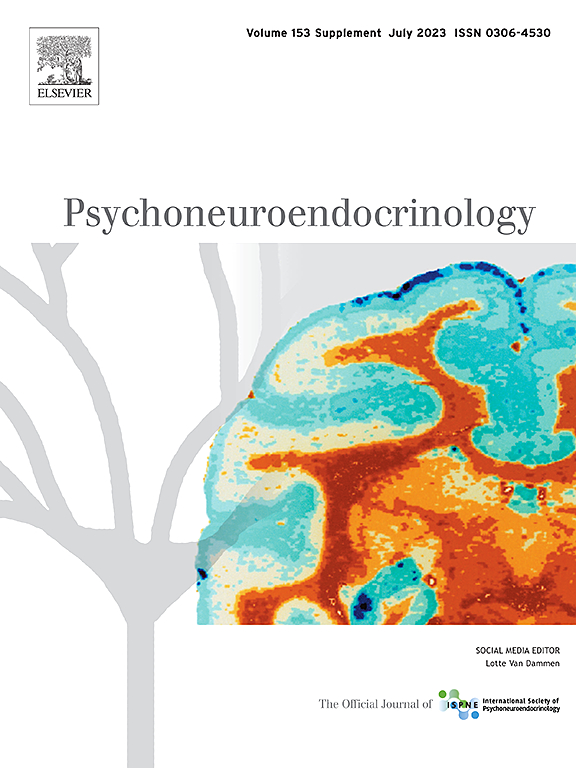
Sexual behavior frequency and menstrual cycle length in mature premenopausal women
2023 Apr 2 Psychoneuroendocrinology Cutler WB, Garcia CR, Krieger AM
Randomised Controlled Trial Sexual Behaviour Frequency Menstrual Cycle
Green Tea and Benign Gynecologic Disorders: A New Trick for An Old Beverage?
2023 Mar 16 Nutrients Hazimeh D, Massoud G, Parish M, Singh B, Segars J, Islam MS
Review Article Adenomyosis PCOS EGCG Endometriosis Green Tea Period PainGreen tea helps alleviate symptoms in multiple benign gynecological disorders, primarily due to a compound called Epigallocatechin-3-gallate.
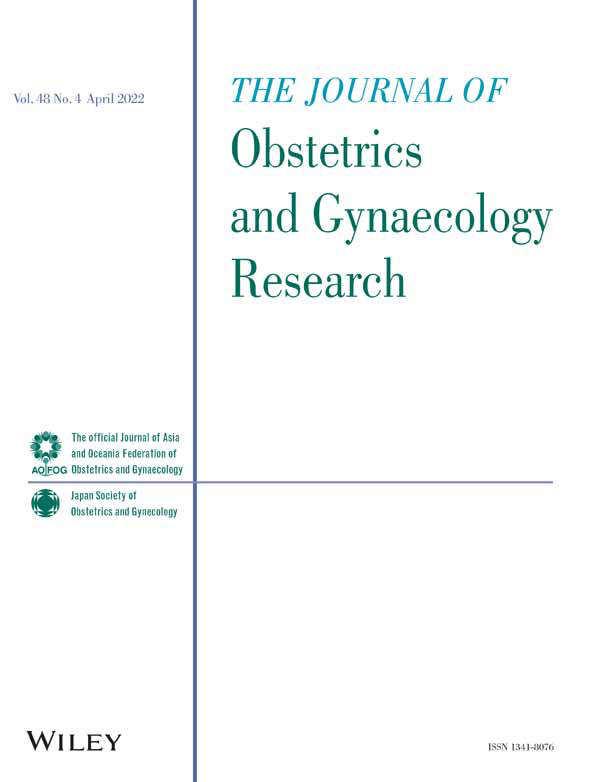
New concepts on the etiology of endometriosis
2023 Feb 06 Journal of Obstetrics and Gynaecology Research Cousins FL, McKinnon BD, Mortlock S, Fitzgerald HC, Zhang C, Montgomery GW, et al.
Recent developments include the identification of over 40 genetic risk factors, the role of retrograde menstruation in the transfer of endometrial stem/progenitor cells, insights into the glandular structure through lineage tracing and tissue clearing microscopy, identification of somatic mutations, including cancer driver genes, in normal and eutopic endometrium, exploration of methylome sequencing for gene regulation, single-cell RNA sequencing for transcriptome analysis, and the use of endometrial epithelial organoid cultures for studying endometriosis, offering potential for personalized medicine.
Experimental Study Review Article Endometriosis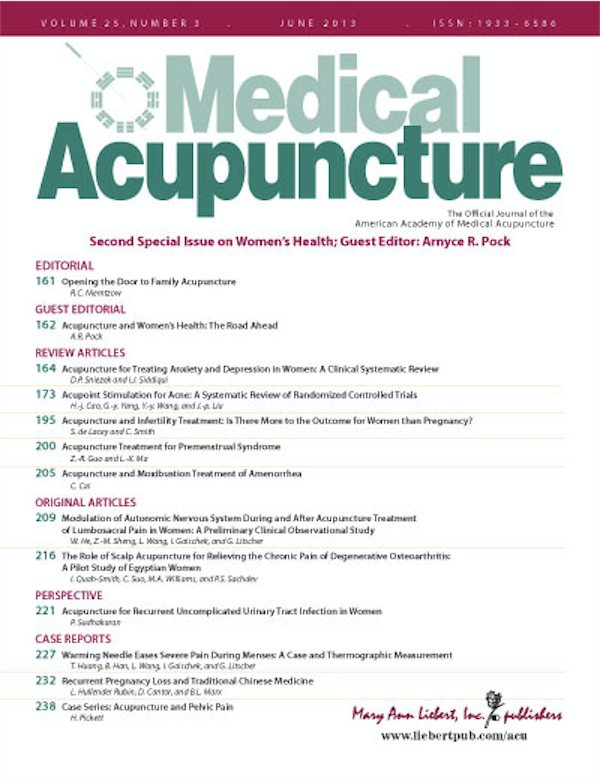
Electroacupuncture Effectiveness for Treating Idiopathic Male Infertility
2022 Dec 01 Medical Acupuncture Nurwati I, Murti B, Budihastuti UR, Prakosa T, Laqif A, Melinawati E, et al.
This case illustrated that electroacupuncture (EA) therapy for idiopathic male infertility has an effect toward improvement of the spermiogram test result, DNA Fragmentation Index (DFI), and success in achieving a pregnancy.
Case Report Male Fertility Electroacupuncture
The Application of Complementary and Alternative Medicine in Polycystic Ovary Syndrome Infertility
2022 Oct 07 Evidence-Based Complementary and Alternative Medicine Shi YQ, Wang Y, Zhu XT, Yin RY, Ma YF, Han H, et al.
The results showed that CAM can improve IR and sex hormone disorders, enhance endometrial thickness, increase ovulation rate, pregnancy rate, and improve anxiety status in infertile patients with PCOS. CAM can not only regulate the current physical and mental health status of infertile patients with PCOS, but also regulate many long-term complications caused by PCOS. Overall, CAM is a safe treatment option for infertile patients with PCOS.
Review Article Complementary MedicineResearch insights are moderated by the Research Hub team and offer an at-a-glance overview of interesting research findings.

2023 Nutrients
Green tea helps alleviate symptoms in multiple benign gynecological disorders, primarily due to a compound called Epigallocatechin-3-gallate.
Review Article Adenomyosis EGCG Endometriosis Green Tea PCOS
Green Tea and Benign Gynecologic Disorders: A New Trick for An Old Beverage?
Hazimeh D, Massoud G, Parish M, Singh B, Segars J, Islam MS
2022 Clinical Therapeutics
Nutraceuticals like zinc, vitamin D, l-arginine, mucuna, ashwagandha, tribulus, and ω3 fatty acids, along with lifestyle changes, can mildly improve male testosterone levels and sperm parameters.
Review Article Sperm Quality Testosterone
Nonpharmacological Interventions for the Management of Testosterone and Sperm Parameters: A Scoping Review
Santos HO, Cadegiani FA, Forbes SC

2022 Evidence-Based Complementary and Alternative Medicine
Acupuncture appears to have positive effects on live birth rates, clinical pregnancies, and other outcomes in female infertility, but more robust studies are required to establish its true efficacy and safety.
Systematic Review
Acupuncture as Treatment for Female Infertility: A Systematic Review and Meta-Analysis of Randomized Controlled Trials
Kewei Quan, Chuyi Yu, Xiaohui Wen, Qiuping Lin, Naiping Wang, Hongxia Ma
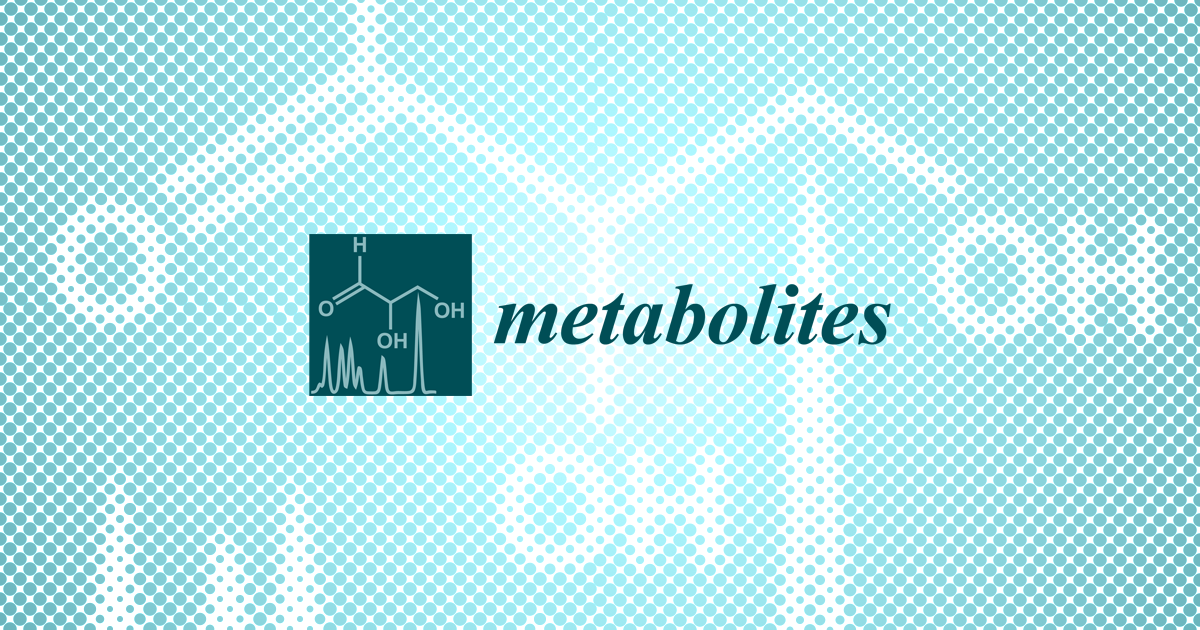
2021 Metabolites
The date palm enhances both male and female fertility parameters through its nutritional attributes and antioxidant functionality.
Review Article Date Fruit Ovarian Function Pregnancy Sperm Quality
Therapeutic Potential of Date Palm against Human Infertility: A Review
Shehzad M, Rasheed H, Naqvi SA, Al-Khayri JM, Lorenzo JM, Alaghbari MA, et al.

2021 Molecules
In reproductive health, honey can improve infertility, protect the postmenopausal reproductive tract, prevent toxic effects, maintain sperm quality by restoring testosterone levels and treat vulvovaginal candidiasis infections.
Review Article Candidiasis Honey Menopause Testosterone Vaginal Candidiasis
Protective Roles of Honey in Reproductive Health: A Review
Zaid SSM, Ruslee SS, Mokhtar MH
Review Articles
Review articles summarise and critically evaluate the current state of research on a specific topic or field by synthesising multiple primary research studies.

Green Tea and Benign Gynecologic Disorders: A New Trick for An Old Beverage?
2023 Mar 16 Nutrients Hazimeh D, Massoud G, Parish M, Singh B, Segars J, Islam MS
Review Article Adenomyosis PCOS EGCG Endometriosis Green Tea Period PainGreen tea helps alleviate symptoms in multiple benign gynecological disorders, primarily due to a compound called Epigallocatechin-3-gallate.

New concepts on the etiology of endometriosis
2023 Feb 06 Journal of Obstetrics and Gynaecology Research Cousins FL, McKinnon BD, Mortlock S, Fitzgerald HC, Zhang C, Montgomery GW, et al.
Recent developments include the identification of over 40 genetic risk factors, the role of retrograde menstruation in the transfer of endometrial stem/progenitor cells, insights into the glandular structure through lineage tracing and tissue clearing microscopy, identification of somatic mutations, including cancer driver genes, in normal and eutopic endometrium, exploration of methylome sequencing for gene regulation, single-cell RNA sequencing for transcriptome analysis, and the use of endometrial epithelial organoid cultures for studying endometriosis, offering potential for personalized medicine.
Experimental Study Review Article Endometriosis
The Application of Complementary and Alternative Medicine in Polycystic Ovary Syndrome Infertility
2022 Oct 07 Evidence-Based Complementary and Alternative Medicine Shi YQ, Wang Y, Zhu XT, Yin RY, Ma YF, Han H, et al.
The results showed that CAM can improve IR and sex hormone disorders, enhance endometrial thickness, increase ovulation rate, pregnancy rate, and improve anxiety status in infertile patients with PCOS. CAM can not only regulate the current physical and mental health status of infertile patients with PCOS, but also regulate many long-term complications caused by PCOS. Overall, CAM is a safe treatment option for infertile patients with PCOS.
Review Article Complementary Medicine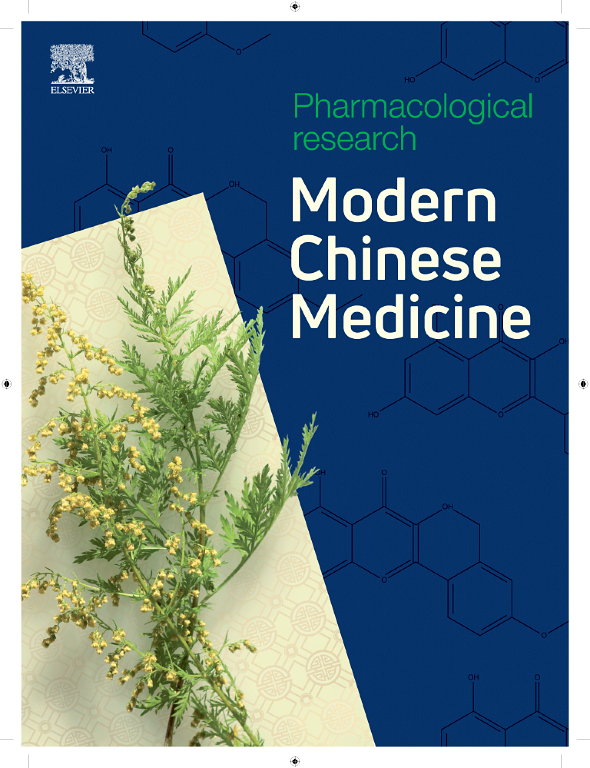
The roles and potential mechanisms of traditional Chinese medicine on male infertility
2022 Sep Pharmacological Research - Modern Chinese Medicine Fang C, Wang F, Shen Y, Yu X, Chang D, Ye Y
TCM has been shown to have several regulatory effects on male infertility (MI).
Review Article Male Fertility
The Treatment of Complementary and Alternative Medicine on Female Infertility Caused by Endometrial Factors
2022 Sep 07 Evidence-Based Complementary and Alternative Medicine Lin J, Ma H, Li H, Han J, Guo T, Qin Z, et al.
In conclusion, CAM therapy has certain advantages in the treatment of infertility caused by endometrial factors. Although it is not the main intervention and treatment measure for infertility caused by endometrial factors, it is still being more widely used because it can restore the physiological function of endometrium, improve the pregnancy rate, adjust the psychological state of women, and improve the quality of life.
Review Article Female Fertility Complementary MedicineClinical Trials
Clinical trials are research studies that involve people and are conducted to evaluate the safety and efficacy of new treatments or interventions, such as drugs, medical devices, or behavioural therapies.

Sexual behavior frequency and menstrual cycle length in mature premenopausal women
2023 Apr 2 Psychoneuroendocrinology Cutler WB, Garcia CR, Krieger AM
Randomised Controlled Trial Sexual Behaviour Frequency Menstrual CyclePublished date was 1979 April 2nd —Adrian Y 30 Jun 2023
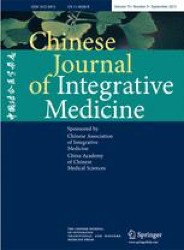
Effects of Acupuncture on Endometrium and Pregnancy Outcomes in Patients with Polycystic Ovarian Syndrome Undergoing in vitro Fertilization-Embryo Transfer: A Randomized Clinical Trial
2022 Apr 13 Chinese Journal of Integrative Medicine Wu J, Ning Y, Ye Y, Liu Y, Tang M, Hu S, et al.
Acupuncture can improve the proportion of type A endometrium, regulate the levels of serum E 2 and P on the day of hCG injection, and improve the pregnancy rate in patients with PCOS infertility undergoing IVF-ET.
Randomised Controlled Trial IVF Acupuncture Endometrium
Efficacy of Yushen Tongluo Granule Combined with Clomiphene Citrate for Anovulatory Infertility: A Double-Blind, Randomized, Placebo-Controlled Clinical Trial
2022 Jan 27 Evidence-Based Complementary and Alternative Medicine Xu H, Wang S, Gao X, Wang G
The combined Yushen Tongluo Granule (YSTLG) and clomiphene citrate (CC) used to treat anovulatory infertility can improve the ovulation rate without affecting endometrial thickness, which is efficacious and safe.
Randomised Controlled Trial Yu Shen Yong Luo Granule Female Fertility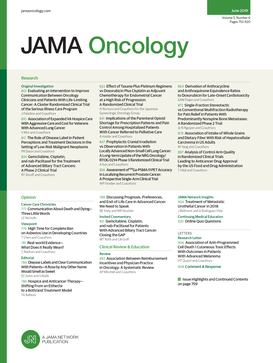
Erzhi Tiangui Granules Improve In Vitro Fertilization Outcomes in Infertile Women with Advanced Age
2021 Aug 12 JAMA Oncology Sun J, Song JY, Dong Y, Xiang S, Guo Q
Treatment with the EZTG granule can improve embryo quality in IVF of advanced age females with both kidney Qi and Yin deficiency syndromes. The mechanism is attributed to down regulation of apoptotic-effector protein expressions in the follicular fluid.
Randomised Controlled Trial Infertility Er Zhi Tian Gui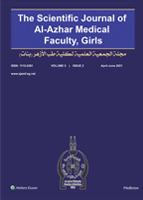
Acupuncture in polycystic ovary syndrome
2020 Jul The Scientific Journal of Al-Azhar Medical Faculty, Girls Gazar, N., Mahmoud, M., Alkafrawy, M., et al.
Acupuncture is a safe and effective treatment of PCOS, as the adverse effect of pharmacologic interventions are not present in patients with PCOS who use acupuncture. Acupuncture therapy increases the blood flow to the ovaries, reducing ovarian volume and the number of ovarian cysts. Reducing serum testosterone, increasing insulin sensitivity, and decreasing insulin level also assist in weight loss.
Randomised Controlled TrialStudy Protocols
Published study protocols are detailed plans that outline the objectives, methodology, statistical analyses, and organisation of a research study that have been made publicly available for others to review and use as a reference.
Presentation Slides

Review Article
Green tea helps alleviate symptoms in multiple benign gynecological disorders, primarily due to a compound called Epigallocatechin-3-gallate.
Hazimeh D, Massoud G, Parish M, Singh B, Segars J, Islam MS

Review Article
Nutraceuticals like zinc, vitamin D, l-arginine, mucuna, ashwagandha, tribulus, and ω3 fatty acids, along with lifestyle changes, can mildly improve male testosterone levels and sperm parameters.
Santos HO, Cadegiani FA, Forbes SC

Systematic Review
Acupuncture appears to have positive effects on live birth rates, clinical pregnancies, and other outcomes in female infertility, but more robust studies are required to establish its true efficacy and safety.
Kewei Quan, Chuyi Yu, Xiaohui Wen, Qiuping Lin, Naiping Wang, Hongxia Ma

Review Article
The date palm enhances both male and female fertility parameters through its nutritional attributes and antioxidant functionality.
Shehzad M, Rasheed H, Naqvi SA, Al-Khayri JM, Lorenzo JM, Alaghbari MA, Manzoor MF, Aadil RM

Review Article
In reproductive health, honey can improve infertility, protect the postmenopausal reproductive tract, prevent toxic effects, maintain sperm quality by restoring testosterone levels and treat vulvovaginal candidiasis infections.
Zaid SSM, Ruslee SS, Mokhtar MH
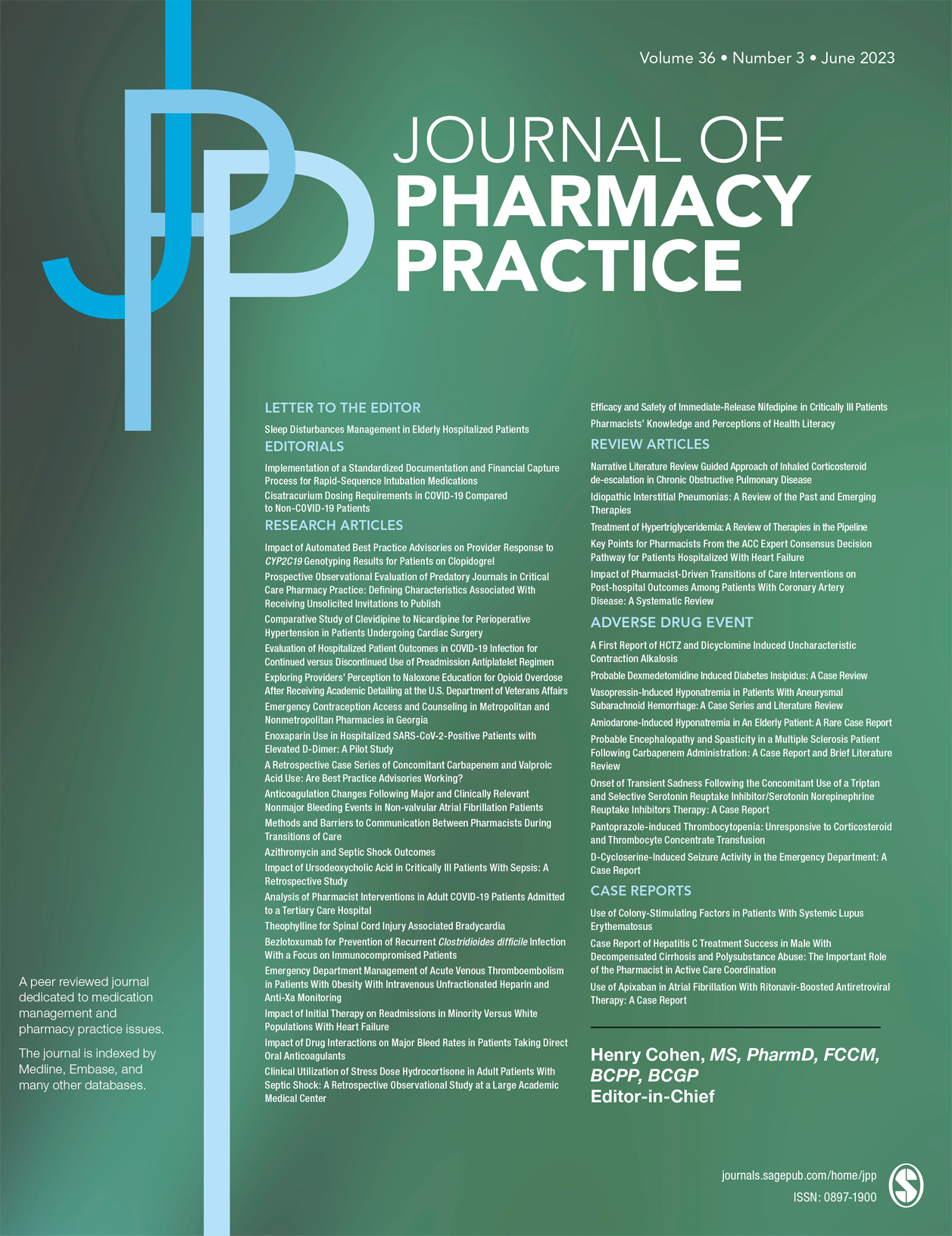
Systematic Review
Black cohosh indicated potential benefits in hormone regulation and endometrial thickness, alongside safety in short-term use.
Fan CW, Cieri-Hutcherson NE, Hutcherson TC

Systematic Review
Acupuncture, moxibustion and Chinese herbal medicines are the most commonly used complementary and alternative medicine in the treatment of female infertility.
Feng J, Wang J, Zhang Y, Zhang Y, Jia L, Zhang D, Zhang J, Han Y, Luo S
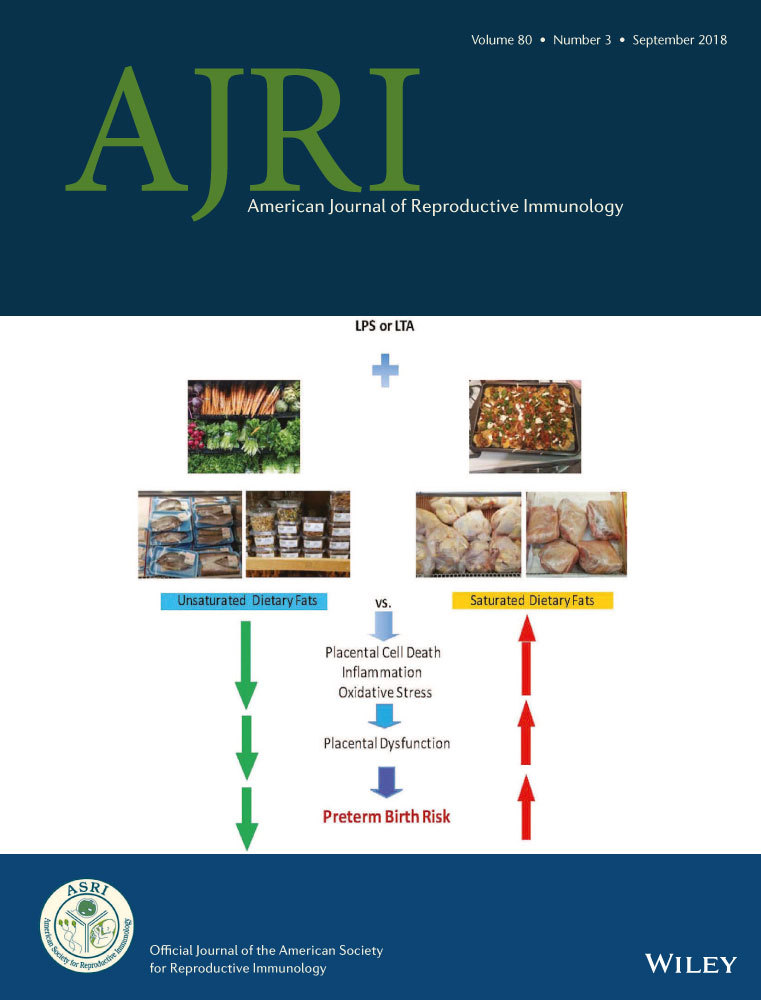
Systematic Review
Various types of genital mycoplasma infections are significantly linked to female infertility.
Tantengco OAG, de Castro Silva M, Velayo CL
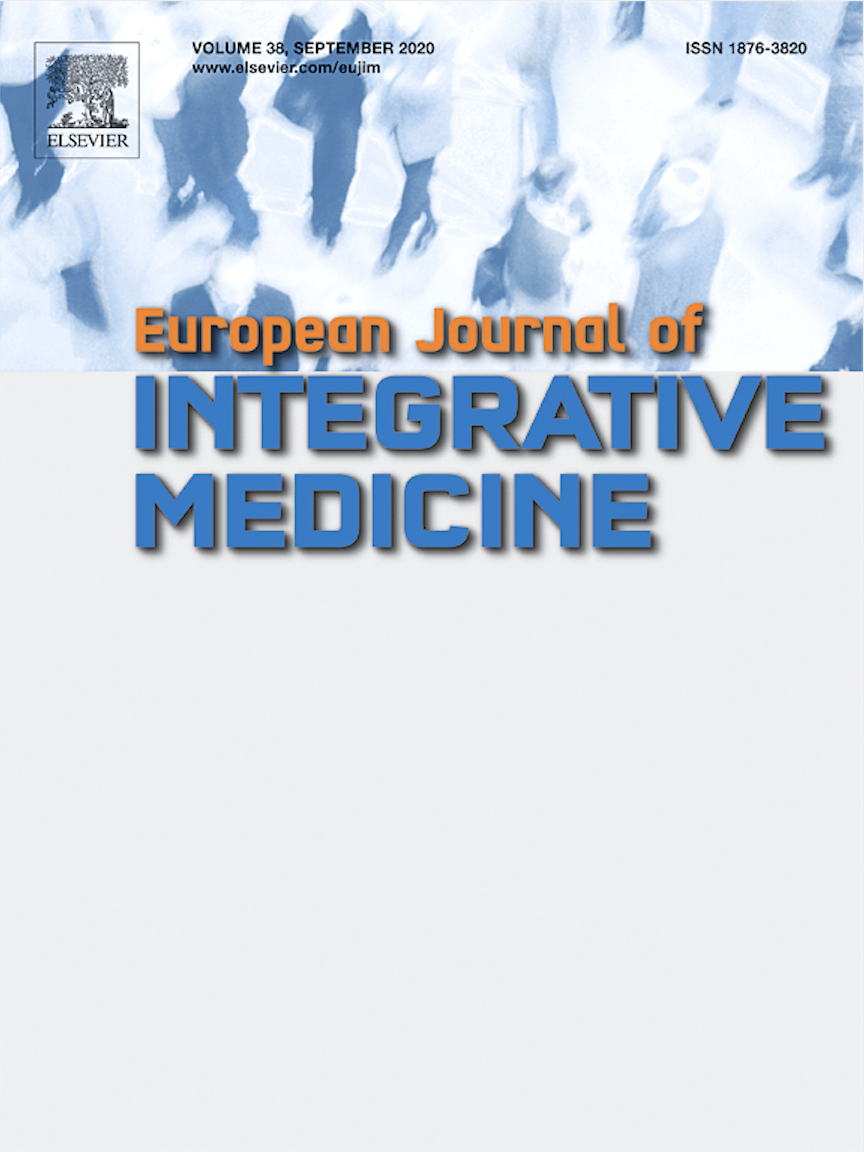
Systematic Review
Compared with western medicine, acupuncture significantly increased the pregnancy and ovulation rates, as well as reducing the rate of miscarriages among Chinese women with infertility.
Zhang, J., He, Y., Liu, Y., Huang, X., & Yu, H.

Systematic Review
Clinical trials categorize botanical parts of date palm as being most effective in eight different areas such as obstetrics, oncology, and endocrinology.
Bagherzadeh karimi A, Elmi A, Zargaran A, Mirghafourvand M, Fazljou SMB, araj-Khodaei M, Baghervand Navid R
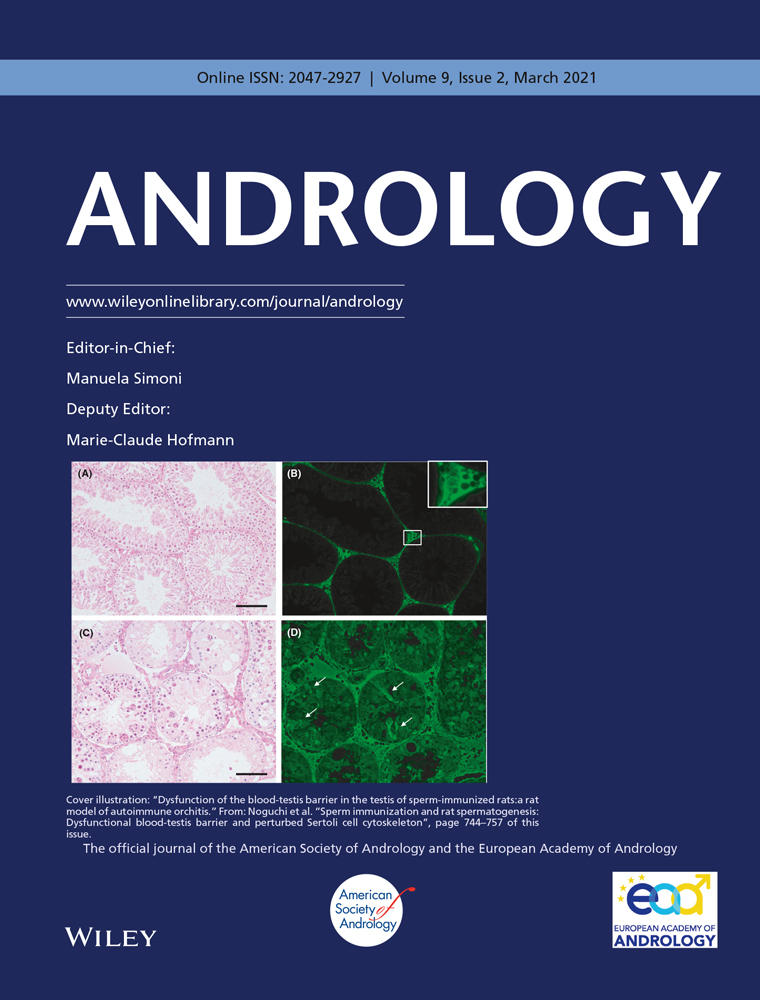
Systematic Review
Traditional Chinese Medicine when combined with vitamins significantly improves sperm characteristics and pregnancy rates in male infertility treatment.
Wang M, Wang Q, Du Y, Jiang H, Zhang X

Systematic Review
The use of acupuncture as a monotherapy significantly improved the rate of pregnancy among the study participants compared with the use of clomiphene citrate alone.
Gao R, Guo B, Bai J, Wu Y, Wu K
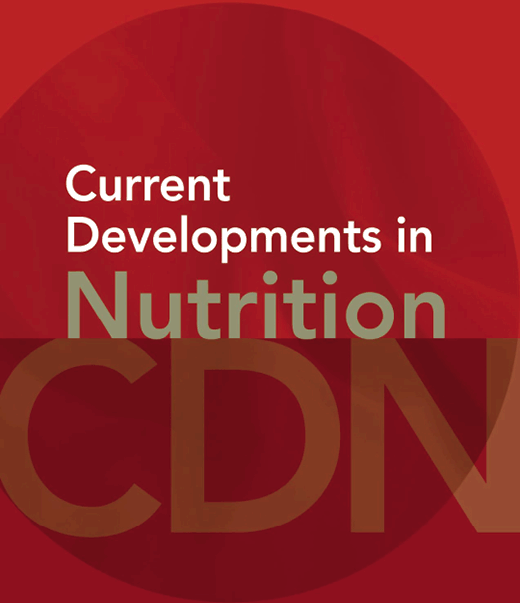
Randomised Controlled Trial
Consuming walnuts can enhance sperm motility and morphology, potentially improving fertility in males with infertility issues.
Robbins W, Kim H, Houman J, Lee GW
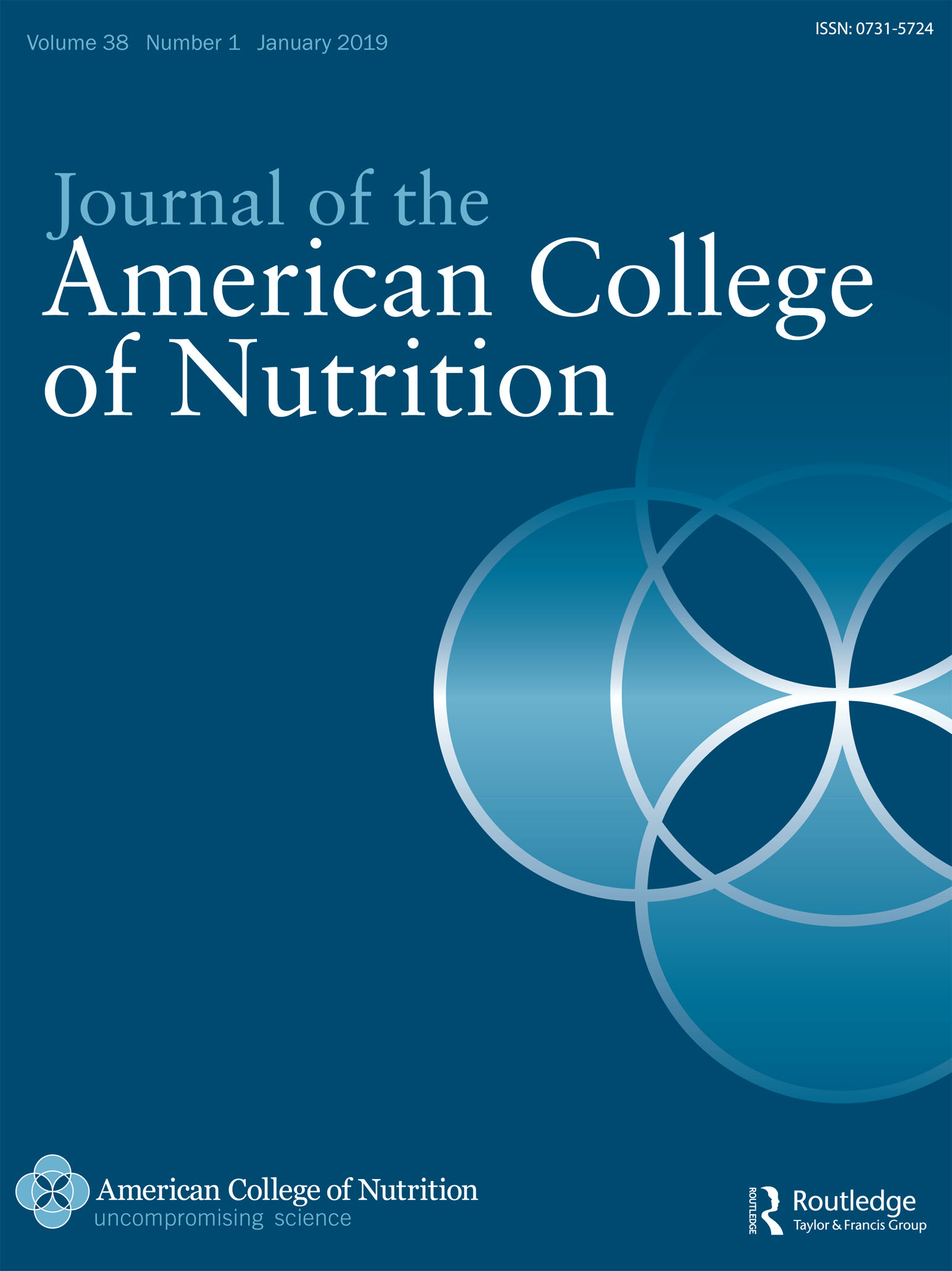
Systematic Review
Date palm components (pollen, pit powder, and gemmule extract) significantly improve male fertility directly through hormonal changes and indirectly via antioxidant abilities.
Tatar T, Akdevelioğlu Y

Systematic Review
Our review suggests that management of female infertility with Chinese herbal medicine can improve pregnancy rates 2-fold within a 3-6 month period compared with Western medical fertility drug therapy.
Ried K.
Executive Summary
Write an executive summary in the form of a blog article on the topic of "Research into Chinese medicine treatment for Infertility" summarising the research below and using language that can be easily understood by patients and avoiding medical jargon using a professional and caring tone of voice.
Write an executive summary in the form of a blog article on the topic of "Researched Chinese medicine treatments for Infertility" summarising the research below in an objective and easy to understand way, and using language that can be easily understood by patients. Group the article into Chinese medicine treatments first, followed by nutrition and other treatments. Avoid using medical jargon and use a professional and caring tone of voice.
Write me a concise but easy to understand executive summary on the topic of "Chinese medicine treatments for Infertility" based on the following research that I will give you. Your summary should be 2 paragraphs long in Australian English spelling and include references to the studies.
A Review Article published in 2023 in the journal Nutrients found that Green tea helps alleviate symptoms in multiple benign gynecological disorders, primarily due to a compound called Epigallocatechin-3-gallate. The paper reviews the role of the compound Epigallocatechin-3-gallate found in green tea, and its effects on various benign gynecological conditions. The compound is noted for its antioxidant and prooxidant qualities, allowing it to interact with multiple cellular pathways that are crucial for disease pathogenesis. The studied conditions include uterine fibroids, endometriosis, dysmenorrhea, adenomyosis, menopause, and polycystic ovary syndrome. The research accounts for the specific mechanisms through which the compound might affect each condition, such as anti-fibrotic, anti-angiogenic, and pro-apoptotic mechanisms. The results suggest that green tea consumption can lead to improved symptom management in these disorders. It was found to lessen the intensity of symptoms associated with uterine fibroids and endometriosis, by invoking anti-fibrotic, anti-angiogenic, and pro-apoptotic mechanisms. It also helped manage pain linked with dysmenorrhea and adenomyosis through reducing uterine contractility and widely felt pain. Additionally, it showed efficacy in weight and osteoporosis control during menopause, and showed potential benefits in managing polycystic ovary syndrome. However, claims regarding its influence on fertility were deemed controversial.
A Review Article published in 2022 in the journal Clinical Therapeutics found that Nutraceuticals like zinc, vitamin D, l-arginine, mucuna, ashwagandha, tribulus, and ω3 fatty acids, along with lifestyle changes, can mildly improve male testosterone levels and sperm parameters. A comprehensive scoping review was undertaken to investigate the effectiveness of nonpharmacologic interventions such as dietary supplements, herbal remedies, diverse diets, sleep patterns, and various forms of physical exercise. The study was aimed to understand their potential in enhancing male health by improving testosterone levels and sperm parameters, especially in men with hypogonadism or fertility issues. Results indicated that among a multitude of nutraceuticals and functional nutrients that claim to stimulate testosterone production, only a select few, including zinc, vitamin D (in cases of its deficiency), l-arginine, mucuna, and ashwagandha, based on well-conducted randomized clinical trials, showed positive results in men with low testosterone levels and related complications. Except for l-arginine, these and other natural substances like tribulus and omega-3 fatty acids showed potential to enhance sperm parameters in infertile men. Implementing proper diet, ensuring adequate sleep and regular exercise are considered crucial, particularly in obese patients. It's also highlighted that androgen receptor content is potentially more significant in muscle hypertrophy than endogenous androgens. While the impact of nonpharmacologic interventions on testosterone levels are modest and do not translate into significant clinical benefits, some supplements and herbal medicines could serve as adjunctive approaches in testosterone and sperm health management. However, proper use of nutraceuticals involves personalised consideration by care providers.
A Systematic Review published in 2022 in the journal Evidence-Based Complementary and Alternative Medicine found that Acupuncture appears to have positive effects on live birth rates, clinical pregnancies, and other outcomes in female infertility, but more robust studies are required to establish its true efficacy and safety. This study evaluated acupuncture's efficacy for female infertility through a systematic review of 27 randomized controlled trials involving 7676 participants. The intervention group receiving acupuncture showed significantly higher rates of live births, clinical pregnancies, biochemical pregnancies, ongoing pregnancies, adverse events, and implantation rates compared to the control group. However, no significant difference was found in oocytes retrieved, good-quality embryo rate, miscarriages, and ectopic pregnancy rate. While the study suggests potential benefits of acupuncture, further high-quality research is needed to confirm these findings.
A Review Article published in 2021 in the journal Metabolites found that The date palm enhances both male and female fertility parameters through its nutritional attributes and antioxidant functionality. The research conducted a thorough review of the role of date palm in treating infertility. The health benefits of date palm and its varied components were explored, with a focus on their effects on reproductive parameters in both sexes. The comprehensive review shed light on how the substantial nutrients and antioxidant features of date palm can be beneficial for people dealing with infertility. In men, the study found direct links between consumption of date palm and improved hormonal levels alongside notable enhancements in seminal vesicle parameters and sperm quality. For women, this natural remedy showed a positive impact on the process of oogenesis, hormone regulation, and improving pregnancy outcomes. The focus was on the potential of date fruit as a natural enhancer of fertility, downplaying the role of any synthetic or invasive medical interventions. The study thus testifies to the innovative use of a widely available natural resource in addressing a pressing health issue.
A Review Article published in 2021 in the journal Molecules found that In reproductive health, honey can improve infertility, protect the postmenopausal reproductive tract, prevent toxic effects, maintain sperm quality by restoring testosterone levels and treat vulvovaginal candidiasis infections. Honey has a highly complex chemical and biological composition that consists of various essential bioactive compounds, enzymes, amino and organic acids, acid phosphorylase, phytochemicals, carotenoid-like substances, vitamins and minerals. Reproductive health and fertility rates have declined in the last 30 years. Therefore, this review aimed to highlight the protective role of honey as a potential therapeutic in maintaining reproductive health. The main role of honey is to enhance fertility and treat infertility problems by acting as an alternative to hormone replacement therapy for protecting the vagina and uterus from atrophy, protecting against the toxic effects of xeno-oestrogenic agents on female reproductive functions and helping in the treatment of gynaecological disorders, such as vulvovaginal candidiasis infection, that affect women’s lives.
A Systematic Review published in 2021 in the journal Journal of Pharmacy Practice found that Black cohosh indicated potential benefits in hormone regulation and endometrial thickness, alongside safety in short-term use. This passage discusses a systematic review that aimed to evaluate the effectiveness and safety of black cohosh for inducing ovulation, regulating hormones, and improving pregnancy rates in women with polycystic ovary syndrome (PCOS)-related infertility. The review involved searching various databases for relevant studies and assessing their quality. Two randomized controlled trials (RCTs) met the inclusion criteria, and additional records were identified from clinical trial registries. The findings suggest that black cohosh may improve hormone regulation and endometrial thickness compared to clomiphene citrate (CC). Three RCTs reported improved pregnancy rates with black cohosh combined with CC. Adverse events were similar between groups. However, the studies had certain risk-of-bias concerns, and overall, there is insufficient high-quality evidence to firmly support the effectiveness of black cohosh in improving pregnancy rates in PCOS-related infertility. The short-term use of black cohosh appears to be safe.
A Systematic Review published in 2021 in the journal Evidence-Based Complementary and Alternative Medicine found that Acupuncture, moxibustion and Chinese herbal medicines are the most commonly used complementary and alternative medicine in the treatment of female infertility. Currently, complementary and alternative medicine (CAM), as a new treatment for infertility, is gradually challenging the dominant position of traditional therapies in the treatment of infertility. CAM claims that it can adjust and harmonize the state of the female body from a holistic approach to achieve a better therapeutic effect and has been increasingly used by infertile women.
A Systematic Review published in 2021 in the journal American Journal of Reproductive Immunology found that Various types of genital mycoplasma infections are significantly linked to female infertility. The researchers carried out a systematic review of literature to study the connection between genital mycoplasma infection and female infertility. They used three electronic databases, PubMed, Scopus, and CINAHL, to gather studies conducted between January 2000 and January 2020. They derived pooled odds ratios and confidence intervals from a fixed effects model to determine the likelihood of female infertility due to genital mycoplasma infection. The gathered studies showed that women suffering from infertility had higher odds of having some form of genital mycoplasma infection. The meta-analysis included a total of eight studies from six different countries. Subgroup analysis indicated a significant relation of infertility with particular infections, namely, Mycoplasma genitalium, Mycoplasma hominis, and Ureaplasma urealyticum. This key finding supports the development of guidelines targeting the diagnosis and treatment of these infections as a means to prevent female infertility.
A Systematic Review published in 2020 in the journal European Journal of Integrative Medicine found that Compared with western medicine, acupuncture significantly increased the pregnancy and ovulation rates, as well as reducing the rate of miscarriages among Chinese women with infertility. Twenty-four eligible RCTs (n=2095) were included in this review. The NMA data showed that warm acupuncture had the highest chances of increasing the rate of pregnancy while acupuncture most positively affected the ovulation rate. On the other hand, a combination of acupuncture and moxibustion had the most significant improvement in endometrial thickness and could reduce the rate of pregnancy loss.
A Systematic Review published in 2020 in the journal Complementary Therapies in Medicine found that Clinical trials categorize botanical parts of date palm as being most effective in eight different areas such as obstetrics, oncology, and endocrinology. In the study, a comprehensive review was conducted on all types of clinical trials (including randomized, pilot, quasi-experimental, cross-over, and non-randomized) assessing the clinical impacts of date palm for the period between 2000 to August 2019. These trials were sourced from both English and Persian language papers. The methodological quality of these trials was scrutinized based on the risk of bias assessment laid out by the Cochrane handbook of systematic reviews and subsequently, results were reported via the Preferred Reporting Items for Systematic Reviews and Meta-Analysis statement. The study saw twenty-six research works fitting the criteria set for inclusion. These studies spanned across eight categories based on the varied botanical derivatives of the date palm. These categories consisted of fields like obstetrics, gynecology, oncology, dermatology, hematology, gastroenterology, endocrinology, metabolism, and infertility. However, there were concerns raised regarding existing biases in trial conduction, with about 80% of the studies indicating performance and detection bias, roughly half indicating selection bias, and about 20% indicating attrition and reporting bias. Regardless, these clinical trials provide useful insights into the possible health benefits of various date palm components.
A Systematic Review published in 2020 in the journal Andrology found that Traditional Chinese Medicine when combined with vitamins significantly improves sperm characteristics and pregnancy rates in male infertility treatment. The methodology used for this research involved a comprehensive review and meta-analysis of all relevant randomized controlled trials that utilized a combination of Traditional Chinese Medicine and vitamins for treating male infertility. These studies were sourced from a variety of databases including CNKI, Wanfang, VIP Database, CBM, MEDLINE, EMBASE, and the Cochrane Library. The quality of the chosen articles was assessed with the Cochrane Reviewer's Handbook 5.3, and meta-analysis was conducted using Stata 15 software. The results indicate that compared to solely Vitamin E or Vitamin E and C, the incorporation of Traditional Chinese Medicine with vitamins led to considerable improvements in sperm concentration, motility, viability, liquefaction time, acrosome enzyme activity and in the overall pregnancy rate for male infertility cases. Certain specific Traditional Chinese Medicine capsules – Shengjing, Huanshao, and compound Xuanju – demonstrated particularly significant enhancements with respect to sperm concentration, sperm movement, and pregnancy rate. Consequently, the combination was found to have significant efficacy in treating male infertility without increasing side effects.
A Systematic Review published in 2019 in the journal Acupuncture in Medicine found that The use of acupuncture as a monotherapy significantly improved the rate of pregnancy among the study participants compared with the use of clomiphene citrate alone. The use of acupuncture in the treatment of infertility may be an appropriate alternative for some patients. To our knowledge, this is the first meta-analysis available to date that compares the use of acupuncture alone or together with clomiphene citrate versus clomiphene citrate alone in the treatment of anovulatory infertility. While some results were promising, their validity is limited by questionable methodological designs, lack of sufficient allocation concealment, inadequate sample sizes and limited long-term follow-up. As such, any results drawn from these studies should be interpreted with caution and applied with care to clinical practice.
A Randomised Controlled Trial published in 2019 in the journal Current Developments in Nutrition found that Consuming walnuts can enhance sperm motility and morphology, potentially improving fertility in males with infertility issues. This study was a randomized clinical trial split into two comparison groups, all of which received typical care for male infertility. Besides the usual care, one group added 42 gm/d walnuts to their diet, while the other group included a daily nutritional supplement recommended for male reproductive health. The participants, a total of 75 in number and with varied demographic profiles, were enrolled at an infertility clinic located in a large metropolitan medical center. The study ran for 3 months, with research measures including semen analysis and blood samples at baseline and after 3 months, while dietary recall and fertility reports were obtained at various stages. In terms of results, the group consuming walnuts showed a marked increase in sperm motility and concentration after 3 months. Simultaneously, both groups—those consuming walnuts and the group consuming the nutritional supplement—demonstrated an improvement in sperm morphology. Further, preliminary data observed over one year suggested a higher frequency of pregnancy in the group consuming walnuts, although it was not statistically significant.
A Systematic Review published in 2017 in the journal Journal of the American College of Nutrition found that Date palm components (pollen, pit powder, and gemmule extract) significantly improve male fertility directly through hormonal changes and indirectly via antioxidant abilities. The methodology used to gather the data for this study involved an extensive review of articles published between 2005 and 2016 on the subject matter. Various medical, scientific and academic databases were searched in both English and Turkish, including PubMed, Science Direct, Clinical Key, Google Scholar, Springer, Dergipark, Ulakbim, and Akademik Dizin. The review focused on the effects of pollen, pit powder, and gemmule extract of the date palm on male fertility. In regard to the results, the research identified that there is a positive correlation between the use of date palm components and male fertility. The date palm elements were found to cause beneficial alterations in hormone levels associated with male fertility. Additionally, an increase in sperm motility and quality, spermatogenesis, and weights of testes and epididymis were also reported. Antioxidant capacities due to phenolic compounds in the date palm components play a significant role in this improvement, as do included gonadotropic and steroidal compounds.
A Systematic Review published in 2015 in the journal Complementary Therapies in Medicine found that Our review suggests that management of female infertility with Chinese herbal medicine can improve pregnancy rates 2-fold within a 3-6 month period compared with Western medical fertility drug therapy. Forty RCTs involving 4247 women with infertility were included in our systematic review. Meta-analysis suggested a 1.74 higher probability of achieving a pregnancy with CHM therapy than with WM therapy alone in women with infertility. Trials included women with PCOS, endometriosis, anovulation, fallopian tube blockage, or unexplained infertility. Mean pregnancy rates in the CHM group were 60% compared with 33% in the WM group. In addition, fertility indicators such as ovulation rates, cervical mucus score, biphasic basal body temperature, and appropriate thickness of the endometrial lining were positively influenced by CHM therapy, indicating an ameliorating physiological effect conducive for a viable pregnancy.
Moderation Tools
Topic
Sign In
Users not signed in are limited to viewing the 5 most recent items of content.
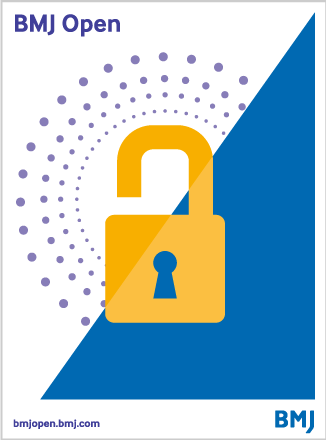
Published date was 1979 April 2nd —Adrian Y 30 Jun 2023